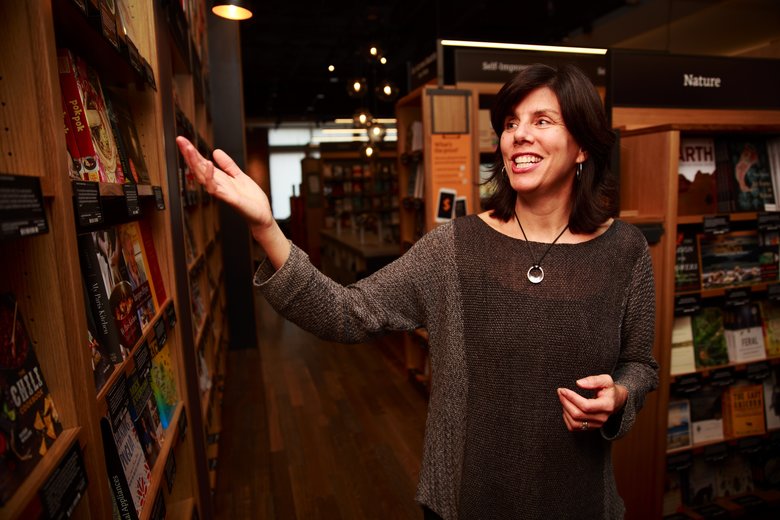
Amazon currently operates 14 different imprints and they focus on everything from translated works to mysteries. Thousands of these titles are normally only found in the e-book format, because many bookstores have utterly refused to stock them. This prompted Amazon to open up a physical bookstore in Seattle that seeks to legitimize their various imprints in the book selling world.
Last year Brad Stone wrote a book was entitled Amazon – The Everything store. In doing research for the book he conducted interviews with many people in the industry to gain an outsiders prospective. One of the people he spoke with was Jaime Carey, Barnes & Noble’s chief merchandising officer, in 2012. Jamie outlined why B&N refused to stock any titles that Amazons imprints published in hardcover or paperback.
“Barnes & Noble has made a decision not to stock Amazon published titles in our store showrooms. Our decision is based on Amazon’s continued push for exclusivity with publishers, agents and the authors they represent. These exclusives have prohibited us from offering certain e-Books to our customers,” Carey wrote. In addition to exclusive deals Amazon has announced with specific authors, in December it launched KDP Select, a way for authors to participate in an unusually structured Kindle lending library and payment pool, as long as their e-books remained exclusive to Amazon.”
“Their actions have undermined the industry as a whole and have prevented millions of customers from having access to content,” Carey continued. “It’s clear to us that Amazon has proven they would not be a good publishing partner to Barnes & Noble as they continue to pull content off the market for their own self interest.”
Barnes and Noble is not the only bookstore that has gone on record to disclose why they won’t carry any titles published by Amazon. Hundreds of smaller bookstores all over the US have also refused to do business with them.
“We can’t buy them,” says Becky Anderson, president of the American Booksellers Association, but speaking solely in her capacity as co-owner of Anderson’s Bookshops in Naperville, Ill. “We have to stand our ground. I do feel bad for the authors. They’re going to miss a lot of places where books are discovered.” Paul Yamazaki, head buyer at City Lights in San Francisco, echoes her thoughts. “We have no plans to buy them. Amazon has been so predatory in their practices. We feel at City Lights that they are so destructive of reading communities in general and booksellers in particular—and resistant to paying taxes.”
“No, we’re not ordering them,” says Lyn Roberts, general manager of Square Books in Oxford, Miss. “It’s very unfortunate, because there are some books we’d probably carry.” Store owner, Richard Howorth, is much more outspoken on the subject. In mid-June he blogged about Amazon’s New York Times Book Review ad under the headline, It Would Be a Sin to Buy It.
The Amazon Bookstore just opened today in Seattle has thousands of books available and they have leveraged GoodReads and the Kindle Store to determine what books will be shelved. Basically, any book that has 4+ stars will likely be available to be purchased. Additionally there are also about a hundred print books from Amazons own imprint, giving these books extreme viability in a retail setting.
I think the main reason behind the Amazon bookstore launch is not only to offer huge selection of bestselling titles, but also serves as a real world distribution platform for the books that other stores are refusing to sell.
Michael Kozlowski is the editor-in-chief at Good e-Reader and has written about audiobooks and e-readers for the past fifteen years. Newspapers and websites such as the CBC, CNET, Engadget, Huffington Post and the New York Times have picked up his articles. He Lives in Vancouver, British Columbia, Canada.